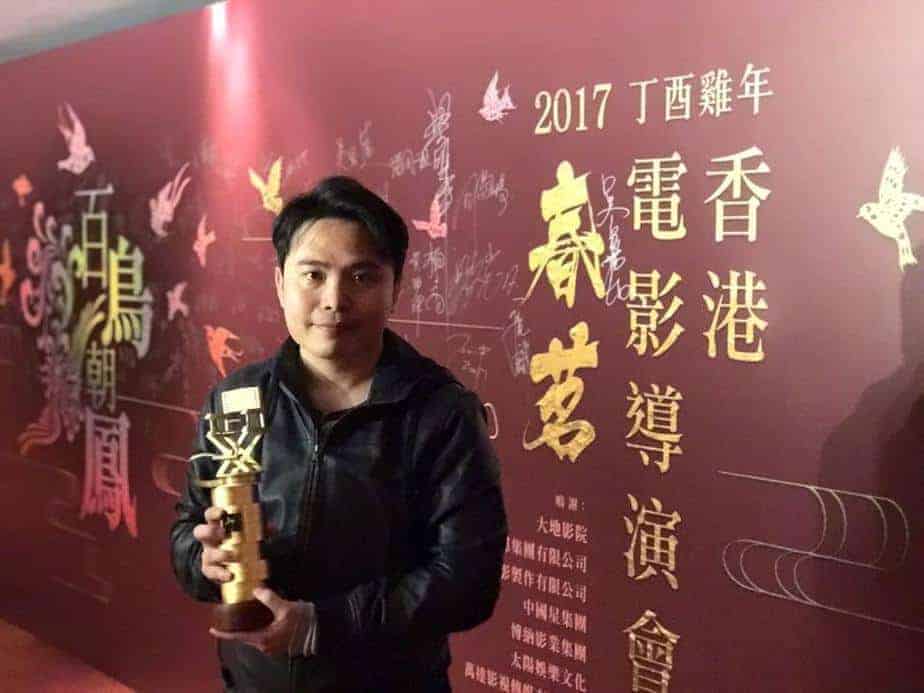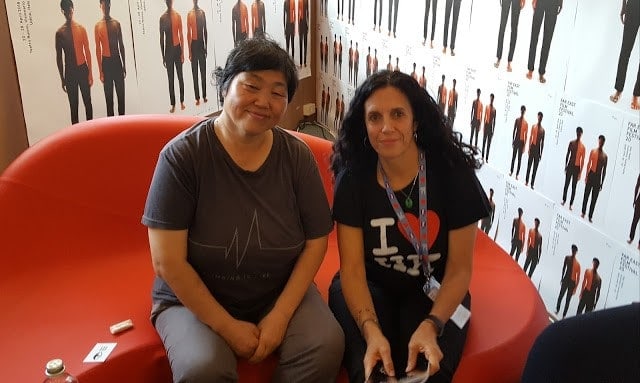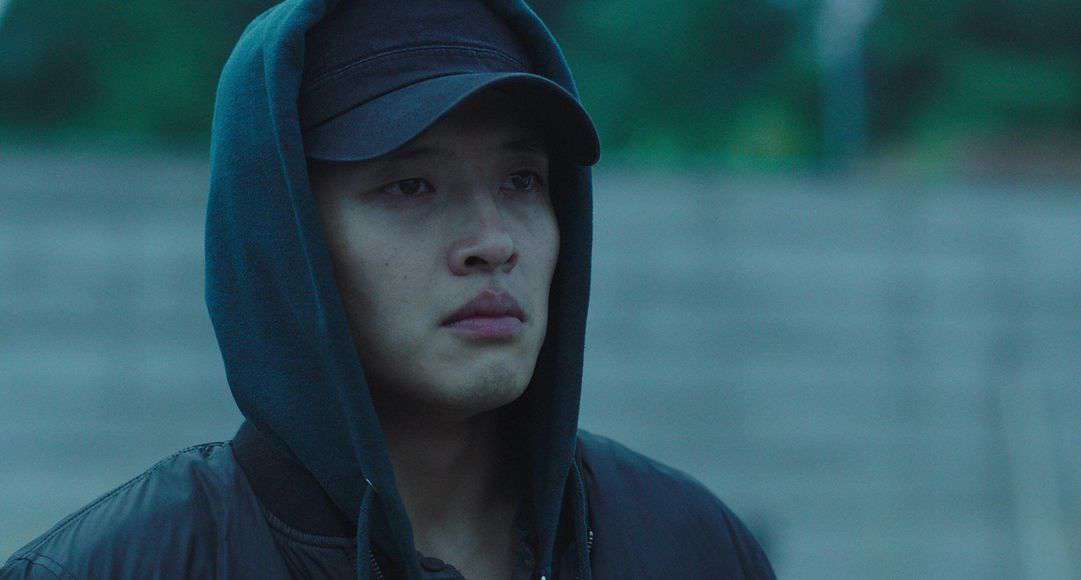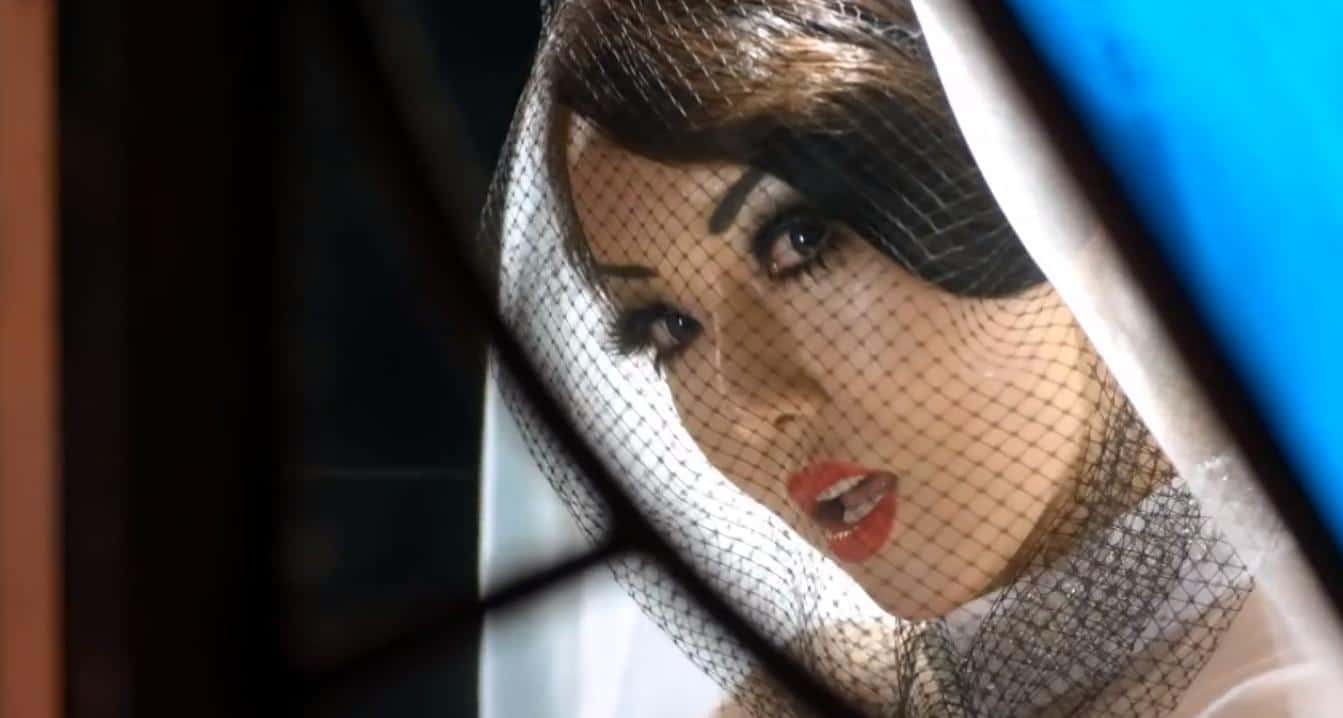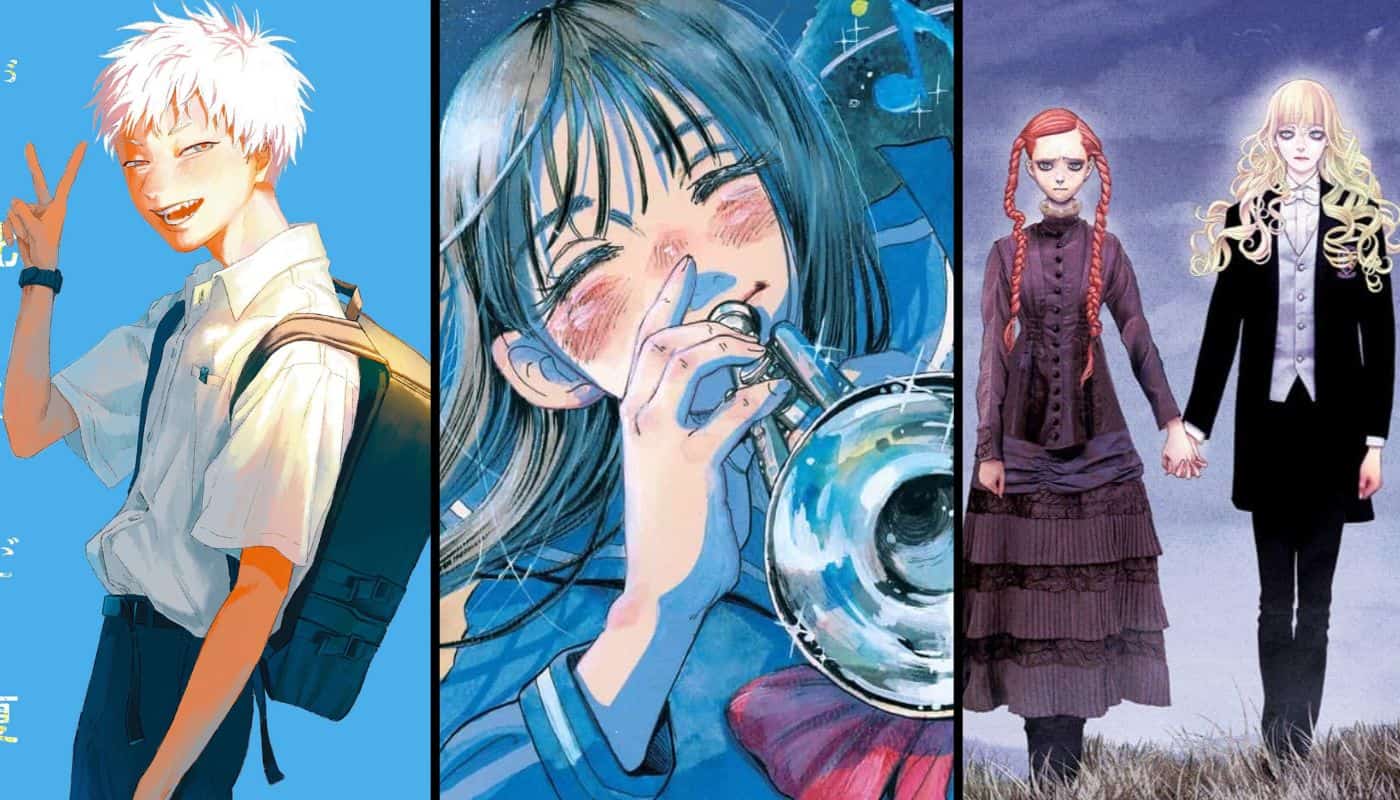Born, raised and educated in Hong Kong, Au studied filmmaking at the Academy for Performing Arts' School of Film and Television under renowned critic Shu Kei. After graduating from the APA in 2004, Au freelanced for a while and made his own shorts, one of which memorialised his beloved grandmother, who passed away in 2003. He finally made his way to TVB, Hong Kong's market leading television network. Though still harbouring aspirations to filmmaking, the pick-up writing and research on period dramas proved valuable for a number of reasons. Au worked as a writer alongside To's right hand man, Wai Ka-fai (Running on Karma, Drug War), eventually participating in To's Fresh Wave talent incubator programme. His 2007 short Merry X'mas cemented Au's defining focus on Hong Kong society and how we relate to each other.
His breakout came in 2015 with “Dialect” in the hot button indie “Ten Years.” As one of the five shorts to contemplate what Hong Kong would look like a decade down the road (spoiler: it doesn't fare well), “Dialect” focused on a cab driver struggling to make a living as someone who speaks only the local language. The man is punished for his use of Cantonese (a dialect according to Beijing) and shuffled off to work less lucrative parts of the city. “Distinction” is his feature debut. (source: zolimacitymag.com)
We speak with him about his career, his cooperation with Johnie To, the Chinese Black List, success, “Distinction”, SEN children, life in Hong Kong and the segregation of the education system in the country.
You have started your career by participating in “Trivisa“. Can you give us some details about the experience of working in such a high profile production? How was your cooperation with Johnnie To?
Working with Johnnie to, for me was very challenging because of the expectations due to the high profile of the production. Even though I was a newcomer, they did lower their standards, they tried to push me to meet their standards. So it was very challenging and I learned a lot about how to work in a commercial film.
Then came “Ten Years”, a film whose impact still carries on. How was that experience, and how have you experiencing the impact the film continues having?

We worked very hard for the film, we wrote lots and lots about it, trying to give different dimensions to the script. If we worked as is usually the case in an independent film or a student film, it would be more likely to just write the script, but as in Trivisa and some scripts I wrote before for Johnnie To and Wa Ka Fai, we worked for the script for 1-2 years. And most of the time we were facing comments like “that's not good enough” or “the story is not interesting enough” or “the character is not interesting enough”. But facing these obstacles is the actual work experience we gained.
For me, “Ten Years” is not just a film, is a social issue, a social movement and so it is about our society and the people in Hong Kong, what they are thinking. There was some positive impact on society since the emotions of a lot of people have changed in these two years since the film was screened. A lot of people feel hopeless or frustrated, but they have a better understanding of what is going on.
In “Distinction”, I am trying to convey some of these messages and no matter how hard the circumstances are, we have no excuse not to be better persons and to try and do our best even though we won't have any success. Just like in the film, the teachers and the schools do not achieve something, but their effort has its importance. That is the reason I wrote “Distinction”, to show that after a lot of pain, they feel helpless and hopeless, but they need to stay strong no matter how tough the situation is or the future will be. So I hope that “Distinction” somehow gives the audience the energy to retain their humanity and keep trying.
I was surprised to learn that “Distinction” was also banned from screening in China. Is that the truth, and if the answer is yes, do you think the Chinese black list so many people talk about, actually exists?
There was an offer from a Chinese distributor after we screened at the Taipei Film Festival and the deal was actually done, but after a few days, they submitted the script to the Censorship Board, and the distributor informed me that because of my presence, they cannot screen the film, it was rejected by the censorship board. I am not sure if that is true or not because I was only informed of this by the distributor, and some other people from the industry told me that maybe because of the political environment nowadays in Hong Kong and China, the distributor would not want to get into trouble and what they said was actually an excuse not to get the film. Things like that do not only happen in China, but also in Hong Kong, where some incidents happened, people told me if I could hide my name from the film poster, because they do not want to get into trouble. And in some events that I was going to be a guest speaker, people told me that the organizers tried to remove me from the guest list, because they were afraid that they will be in trouble. It is kind of a self-censorship I guess, from people themselves instead of authorities. But, no matter what, that is the White Terror. But I cannot say if the black list really exists but the White Terror and the self-censorship definitely exist.
Why did you decide to shoot a film revolving around SEN children? How is the situation with these kids in Hong Kong nowadays and are the difficulties their parents face in the film realistic?

When I go to the SEN school in Hong Kong, I see and hear the smiles, the laughter and the voices and the energy and the students were playing and they were happy and it is a very good environment for their education. The teachers have to tailor-make their teaching, since each student has different needs. In Hong Kong, the students are more likely to take the exams, they are very concerned about the score and the achievement of the work condition, they are afraid they will not get into the university and they will fail in their life. And I go to their schools and they keep silence, they don't play, they just feel very tired. So I was wondering about the concept of education. If the purpose is to just get them to pass the exams and meet the standards or instead to try and find the strengths of the students and develop these strengths, in order for them to be individuals, to be unique, and this also applies to the SEN students.
Also the episode where a SEN school is trying to make a musical is an actual one, where the mentally handicapped students and their teachers and their parents work with the “mainstream” students. There was little media coverage, the people are not concerned, it was not a matter of general importance. And when I was working the script, “Ten Years” was screening in Hong Kong, and I had an experience during its screening in Asian festivals in Hong Kong, where I had to buy the tickets for my friends and invite them to come but they told me they cannot come because they had other important things to do that and so the tickets remained with me. But after “Ten Years” became a big hit, my friends called me back and asked if they can get tickets. So I wondered, “what is the value of making a film?” If the audience is small there is little value in my film, so when I saw the school doing that musical, it echoed me, and so I wanted to do a film about that.
Actually my film refers mostly, the real research of the case, is what the students and the parents are suffering from these days. For example, parents have huge expectations from their children, because they are afraid that if they fail the exam, if they cannot go to the university, they won't have a future. They want them to have a stable life, so if you want to get that, you have to pass the exams, get into the university and then have a good job. That is what the parents believe, and they try to pass that to the next generation. But the students have different needs, they want to do different things, and in that aspect, the film is realistic.
I found the character creation in the film fascinating. Can you tell us how you and the two co-writers, Ashley Cheung and Chung Chuiy worked on that front?

I started writing the film a few years ago. Chung is my student and I worked with her and other researchers to write the story for about one year, but after we finished the story and the characters of the film,and just before the shooting, I invited Ashley Cheung, because I wanted to have another angle, to see if the story is interesting, if the structure of the story is good enough, and If Ashley could provide another angle for me. But before Ashley came, we already had the draft of the script, and all the characters were already developed. So our cooperation mainly consisted of them telling me if this is interesting or not, if the students and the examination are realistic. But they give me a better angle on how the students feel, and about the examination. Of course we had our role models, because all characters are based on true people, so that is how we created the characters.
Grace seems to highlights the agonies women in HK have nowadays, regarding marriage and children. What is your opinion on this topic, and why do you think HK is suffering from decreasing birth rates?
Actually, many friends of mine worry because the living standard is very difficult in Hong Kong and they have a lot of concern for giving birth in Hong Kong and that was my research regarding Grace. Also in the beginning of the film, I show that she is afraid to give birth because she is afraid of what will happen if the kid is mentally disabled. My opinion regarding the low birth rate is because living in Hong Kong is difficult because of the housing, the people cannot afford to have their own house and the living cost is very high and the burden of people in their 20s or 30s is that they also have to take care of their parents, pay the rent and the rest of the significant expenses of living in Hong Kong. And another reason many mention is that because they do not want to hurt the life of the next generation because they believe the next years will be even more difficult, not only regarding the political setting but also the environment, the climate etc. There is a certain amount of hopelessness regarding the future and that is why they prefer not to give birth in Hong Kong.
Also if you want to take the responsibility of giving birth, I think that If I ever had a child, I could not be a filmmaker anymore, in order to be responsible for them and to provide them better you have to pay too much, and you must actually give up what you want to do with your life. And in Hong Kong, we always say that if you have children, you are very brave, you have a lot of courage.
The film also makes a point of showing the differences of the elite and the “low level” students. How does the education system works exactly in that aspect, and what is your opinion about this harsh segregation?

In Hong Kong, we have Band 1 School for elite students and Band 3 Achool for the low level students in high school. But in the end, they all have to think about getting into a good ranking University. The Band 3 students are already hopeless and so they are just wasting their time in high school. And the Band 1 students will try their best to have better achievements in exams and related activities.
For me is not just about the education system, it is also about our culture and how to define success. For example , if you go to the higher level people think that you are good. For me that is not ok, because people have different strengths, for example someone may be good in cooking and be a good chef, but there is not such a class, so you cannot get an “A”, there is not script writing class or no directing in the high school etc. But if you get a low grade in high school, all the teachers, the students, the parents think you are not a good person and I think this is not good. We have to have the examination, in order to check the progress of the students, but even if someone fails it does not mean that he has failed in life, they may have another achievement later in their lives.


